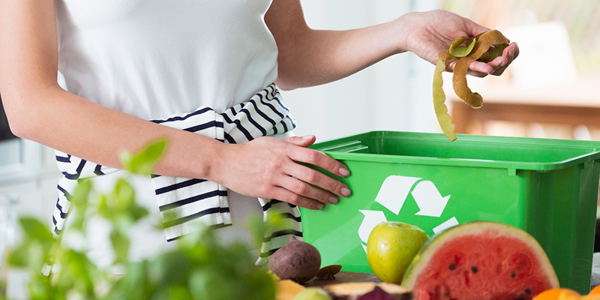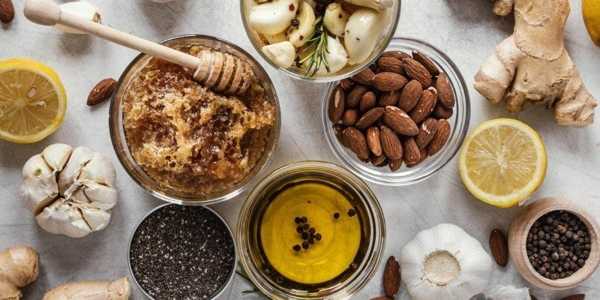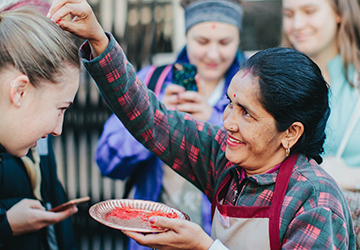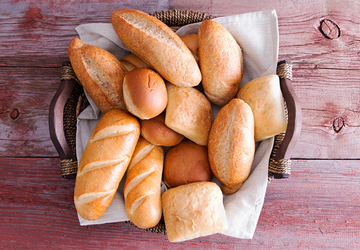Cooking is not just about tossing ingredients into a pot and hoping for the best. It's an art, a skill that can be honed and mastered over time. If you're eager to elevate your cooking game from microwave dinners to culinary delights, here are down-to-earth tips to turn your kitchen into a canvas for your gastronomic masterpiece.
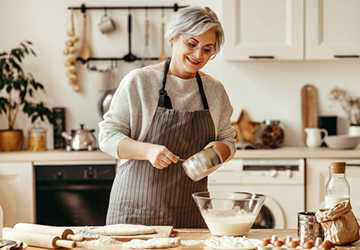
Start with the Basics: Master the Fundamentals
Cooking, like any art form, requires a solid foundation. Before attempting to recreate a five-star dish, ensure you're comfortable with the basics. Learn to chop onions without shedding tears, master the perfect egg boiling, and understand the difference between sautéing and frying. These seemingly simple skills are the building blocks of a great chef.
Begin with easy recipes with fewer ingredients, allowing you to focus on technique. Scrambled eggs, pasta with homemade sauce, or a classic grilled cheese sandwich are excellent beginner choices. As you gain confidence, gradually introduce more complex recipes. Remember, even the most renowned chefs started with the basics.
Embrace the Joy of Experimentation
Cooking is not a rigid science; it's an ever-evolving, creative process. Feel free to experiment with flavours, textures, and cooking techniques. Your kitchen is your playground, and the ingredients are your toys.
Start by tweaking existing recipes. Add a pinch of your favourite spice to a dish or substitute one ingredient for another. Taste as you go, and trust your instincts. The more you experiment, the better you'll understand the nuances of different ingredients and how they interact.
Consider keeping a cooking journal to document your experiments. Note the changes you make to recipes, the results, and your thoughts on the outcome. This way, you can track your culinary journey, learn from your successes and mishaps, and fine-tune your creations.
Invest in Quality Tools and Ingredients
While it's true that a skilled chef can create magic with the most essential tools, having quality equipment and ingredients can significantly enhance your cooking experience. You don't need a kitchen with fancy gadgets, but investing in a few essential items can make a difference.
A sharp knife, a reliable cutting board, and a good set of pots and pans are essential. Quality only sometimes means expensive, so shop for durable and functional items without breaking the bank.
Similarly, using fresh, high-quality ingredients can elevate your dishes. Visit local or farmers' markets to find fresh produce and unique ingredients. Understand the seasonal availability of different foods, and let that influence your menu. The better the ingredients, the better the final dish.
Learn from the Masters: Watch, Read, and Follow
One of the best ways to master any art is to learn from those who have already perfected it. In the culinary world, this means watching cooking shows, reading cookbooks, and following experienced chefs.
Watch cooking shows not just for entertainment but also to observe techniques, presentation styles, and the use of ingredients. Many chefs share invaluable tips and tricks during their shows that you can incorporate into your cooking.
Cookbooks are treasure troves of culinary wisdom. Start with beginner-friendly cookbooks and gradually move on to more advanced ones. Read recipes not just for the instructions but to understand the science behind the dish. This knowledge will empower you to make informed decisions and improvise when needed.
Follow chefs on social media platforms for daily inspiration. Many chefs share quick cooking video tips and even answer questions from their followers. Engage with the cooking community online, ask for advice, and share your experiences.
Develop Time Management Skills
Cooking involves coordinating multiple tasks simultaneously. Learning to manage your time efficiently in the kitchen is crucial. Start by planning your meals and preparing ingredients ahead of time. Mise en place, a French term meaning "everything in its place," emphasizes organizing and arranging all necessary ingredients before you start cooking; this not only streamlines the process but also reduces stress during meal preparation.
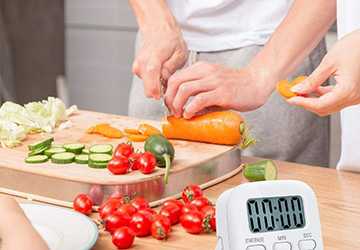
Set timers, use alarms, and prioritize tasks to ensure everything comes together seamlessly. As you become more adept at managing your time in the kitchen, you'll easily handle complex recipes.
Understand the Importance of Seasoning
Seasoning is a chef's secret weapon. Knowing when and how to season your dishes can differentiate between a bland meal and a flavour explosion. Experiment with herbs, spices, and condiments to discover your preferred flavour.
Learn the art of balancing flavours – the interplay between sweet, salty, sour, and umami. Taste your dishes throughout the cooking process and adjust seasoning accordingly. Adding more seasoning later is more accessible than salvaging an over-seasoned dish.
Cultivate a Mindful Cooking Approach
Cooking is not just about the result but also the journey. Cultivate a mindful approach to cooking by immersing yourself in the process. Focus on the colours, textures, and aromas of your ingredients. Engage your senses, and be present in the moment.
Avoid rushing through recipes or multitasking to the point of distraction. Enjoy the chopping rhythm, the sizzle of ingredients in a hot pan, and the anticipation as your creation comes together. This mindful approach enhances the cooking experience and improves concentration and attention to detail.
Share and Receive Feedback:
Invite friends and family to share in your culinary adventures. Cooking for others allows you to showcase your skills and receive valuable feedback. Please pay attention to their reactions, preferences, and suggestions. Constructive criticism can be a powerful tool for improvement.
Additionally, join cooking groups, either online or in your community, where enthusiasts share recipes, tips, and feedback. Participating in these communities can expose you to diverse cuisines, techniques, and perspectives. Embracing positive or constructive feedback fosters continuous growth and refinement of your cooking skills.
Conclusion
Mastering the art of cooking as a hobby is a journey, not a destination. Embrace the learning process, take risks, and savour each step. With a solid foundation, a dash of experimentation, quality tools, and inspiration from the masters, you'll soon find yourself creating culinary delights that will satisfy your taste buds and impress your family and friends. Happy cooking!
